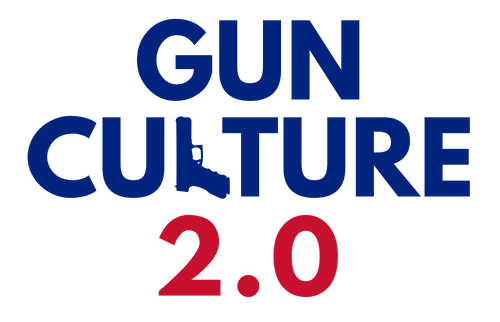As usual, sociologist Jennifer Carlson has written insightfully about the consequences for scholarship of who funds research on guns. She finds that federal funding for research on gun CRIME persisted post-Dickey.
As federal public health funding dried up, private funding (seems to have) increased. I’m thinking of the Joyce Foundation previously and Arnold Ventures now. Probably others, as I don’t follow this closely.
It occurred to me that there is another negative unintended consequence of this shift to privately-funded research on guns: the lack of publicly available data on guns and gun owners. So many surveys of gun owners have been conducted recently, but that data is privately held.
I contrast this with my former field, the Sociology of Religion, in which scholars used private and public funding to create a publicly accessible archive of data (and many other research and teaching resources). It’s called the Association of Religion Data Archives. Gun studies scholars should check it out. It provides a model for the future as the field develops.


The problem as I see it is that publicly funded research has tended to be following the direction of the government entity that is doing the funding which usually (obviously) follows the intent of the administration in power. So while that data is public it is also biased so IMHO useless.
I would love to see private data freely available which I feel should be the research ideal but I also feel that data data is going to be biased. I actually do not know but are their private organizations that are pro-gun that are funding research? I would suspect the opposite is true.
LikeLiked by 2 people
Whether government or privately funded, it seems to me the narrative that these funding agencies want to promote is that gun ownership (and owners) are a pathology rather than normal. As long as the preferred narrative is so strongly biased, P.I.’s will work hard to support that narrative. People know who butters their bread.
LikeLiked by 2 people
When I started my thesis research in 2013, I almost immediately started my own private wiki for my research notes (one that I host privately, such that I can maintain complete and absolute control over it). Over almost 12 years, that has blossomed into a 1,500 page trove of information with, at last count, over 22,000 edits. It continues to grow every day.
One of the first books I read for my thesis was Michael Bellesiles’ notorious tome, and I promised myself that I’d never back myself into that sort of research corner. I meticulously track my sources, such that I’d be able to recall that information in a heartbeat. Of course, having a wiki like that has lots of other benefits, not the least of which is that I can dig through mountains of information with Google-like efficiency. As an aside, I’ve even thought that there would probably be a good white paper in the use of wikis for professional historians of all stripes, as wikis can be incredibly useful but take some structure and discipline to get right.
Would I consider making my wiki public? Not a chance.
Making it public means that I give the enemy the benefit of over a decade of research, including careful transcriptions of over a hundred 18th and 19th books—many of which have probably not seen the light of day in well over a century. I’d be giving several thousand carefully transcribed and curated newspaper articles about various gun manufacturers spanning over two centuries. There’s about 750 detailed biographies of people—some famous, most not so much—who were a part of the commercial arms industry over the past two centuries. These biographies include painstakingly dissected census records, birth and death records, familial relationships, tax records, patents, and a million other bits and pieces that slowly come to surface. I’d also be giving them lists that I actively maintain of several thousand priceless historic arms, many of which are held in private collections.
If Bloomberg’s minions (and political sycophants) want this knowledge, they can develop it themselves. I’m not contributing to their mountain of “research” bullshit.
LikeLiked by 2 people
If memory serves, that particular law was passed because most of the “research” being supported was of the form “Guns are Bad, and Gun Owners are EVIL, and we want to dig up all of the statistics we can to prove that to justify gutting the 2nd Amendment.”
It isn’t the first time I heard the phrase, “Lies, Damn Lies, and Statistics,” but it definitely fit.
LikeLiked by 2 people
Crime is not a “Public Health” issue in any meaningful definition of the term so the first error was giving public health the mandate to conduct research upon it. They then proved that error in spades by treating private ownership of guns as inherently negative and knowingly and intentionally designing and doctoring their research to prove that premise.
If the public entities chosen had been those with actual subject matter expertise in crime, and the problem of criminal and negligent misuse of firearms separated from ownership qua ownership in the research, there would have been no need for the funding restrictions.
One of the best publicly available sources for information on the history of Dickey and the absolute travesty of public health “research” which led to its necessity is Doctors for Responsible Gun Ownership. they bring the receipts as the founders were present at the hearings, IIRC. https://drgo.us/
LikeLiked by 1 person